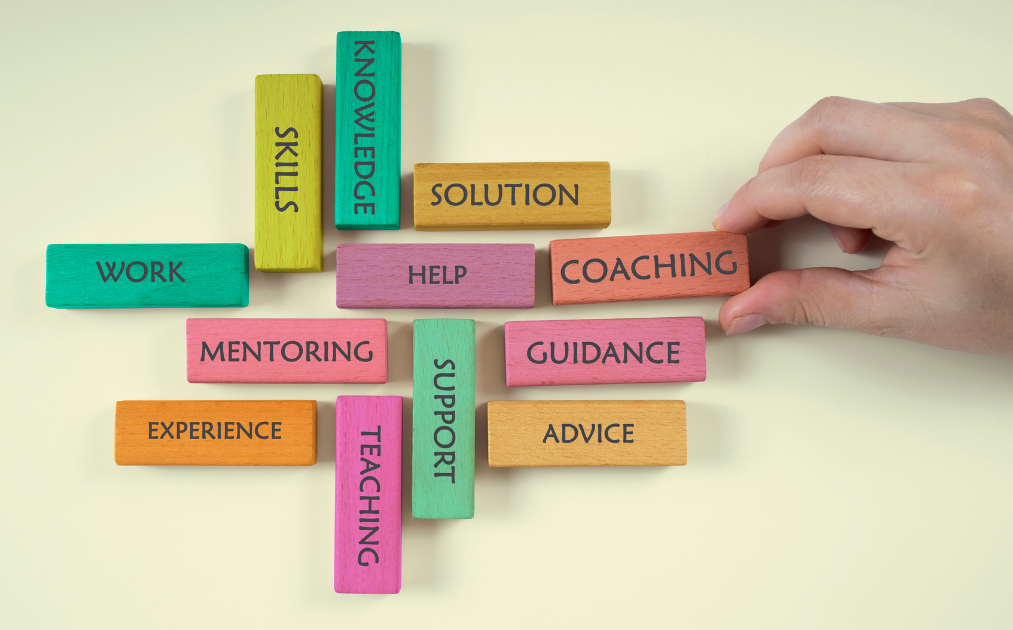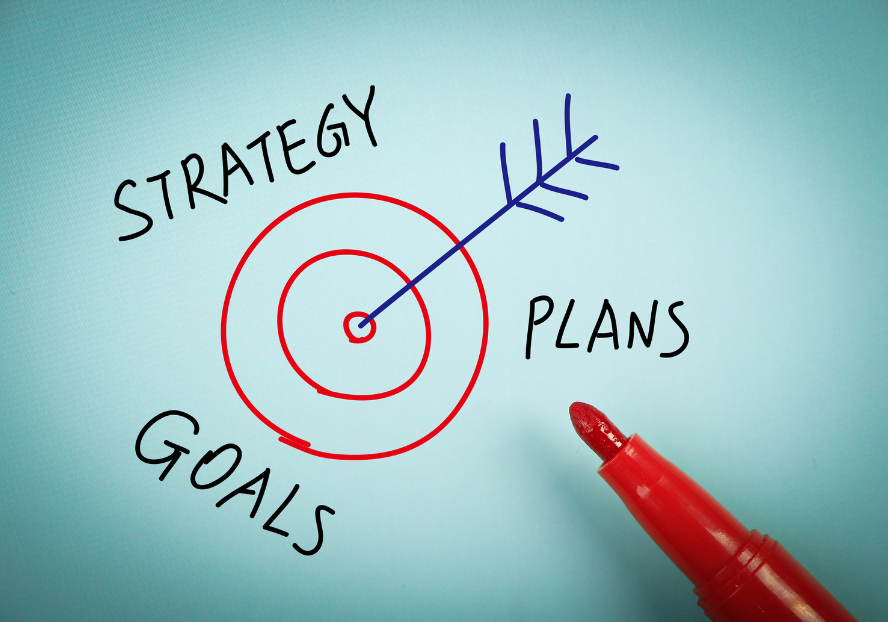Have you ever felt like there’s a barrier between where you are and where you want to be? Are you tired of self-doubt holding you back from reaching your goals? It’s time for a change, and it starts with your mindset.
When pursuing personal and professional success, we often overlook our mindset’s significant role in the outcome. It shapes our thoughts, beliefs, and actions, ultimately determining our ability to achieve our goals.
It’s no wonder why mindset coaching has gained popularity in recent years. This transformative approach to personal development focuses on shifting limiting beliefs, cultivating a positive mindset, and realizing untapped potential.
In this article, we’ll cover the world of mindset coaching, its importance in achieving personal and professional goals, and its benefits to those who engage in its transformative process.
What is Mindset Coaching?

Mindset coaching is a transformative approach to personal development that focuses on shifting your perspectives to optimize your potential for success.
A mindset coach can help you clarify your goals, values, and motivations through powerful questioning, active listening, and personalized strategies. They assist in identifying and challenging negative thought patterns and self-sabotaging behaviors hindering your progress.
By promoting a growth mindset and self-awareness, mindset coaches equip their clients with the tools and mentality necessary to confidently navigate life’s obstacles, overcome challenges, and achieve their highest potential.
While a mindset coach certification isn’t a requirement, it’s helpful to work closely with an experienced coach who can support you with identifying and overcoming your perceived limitations, developing a growth-oriented mindset, and cultivating the necessary skills and strategies to achieve your goals.
Benefits of Mindset Coaching

Mindset coaching can offer many benefits when you feel stuck in life and unsure how to move forward, providing you with the guidance needed to overcome limitations and create positive change.
Listed below are ten key benefits of working with a mindset coach:
Shift Limiting Beliefs
Identify and challenge self-limiting beliefs that continue to hold you back. By reframing negative thought patterns and replacing them with empowering beliefs, you can break free from the mental barriers keeping you stuck.
Gain Clarity and Direction
A mindset coach can help you gain clarity around your values, passions, and goals. Through introspection and guidance, you can define your vision for the future and create a roadmap to achieve your desired results.
Cultivate a Growth Mindset
Mindset coaches teach their clients to nurture a growth mindset that embraces challenges and sees failures as learning opportunities. Adopting this attitude empowers you to persevere, take risks, and continually develop your skills and abilities.
Enhance Self-Confidence
Working with a mindset coach can boost self-confidence by helping you recognize your strengths and celebrate your achievements. You can build a strong self-worth and belief in your capabilities through guided self-reflection and positive reinforcement.
Overcome Procrastination and Resistance
A mindset coach will support you in overcoming procrastination and resistance to change. They provide accountability and help you develop strategies to take consistent action toward your goals, breaking the cycle of stagnation.

Build Resilience
Mindset coaches equip coaching clients with tools and techniques to develop resilience in the face of setbacks and challenges.
By cultivating a positive and resilient frame of mind, you’ll be better able to bounce back from failures, adapt to change, and maintain focus on your long-term goals.
Improve Decision-Making Skills
Strengthen your decision-making abilities by promoting clarity, self-awareness, and critical thinking. You can make more informed choices that align with your values and aspirations through reflective exercises and guided reflection.
Enhance Overall Well-Being
Mindset coaches emphasize holistic growth, incorporating various aspects of life such as relationships, health, and self-care. By creating balance and harmony in these areas, you can experience improved overall well-being and fulfillment.
Uncover Untapped Potential
Working with a mindset coach can help you realize your full potential by uncovering hidden talents and strengths you may need to give yourself credit for. When you allow yourself to tap into your innate abilities, you become open to new possibilities and accomplish goals you may have previously thought were unattainable.
Create Lasting Change
Mindset coaching focuses on long-term transformation rather than short-lived fixes. You can create sustainable change that impacts your life by ingraining new habits, beliefs, and strategies.
The Role of a Mindset Coach

A mindset coach can guide you toward personal and professional growth by helping you develop positive and empowering perspectives. They serve as a trusted partner, facilitator, and mentor throughout the coaching process, employing various techniques and strategies to support you in achieving your desired outcomes.
Let’s go a little deeper to explore the qualities and skills of a mindset coach, the importance of establishing a supportive coaching relationship, and some standard techniques used by mindset coaches.
Qualities and Skills of an Effective Mindset Coach:

Empathy and Active Listening
A suitable mindset coach possesses a high level of empathy and actively listens to their client’s concerns and aspirations. They create a safe and non-judgmental space for their coaching clients to express themselves freely and feel understood.
Strong Communication Skills
Clear communication is crucial for those in the mindset coaching business, as sharing ideas, asking powerful questions, and providing feedback is necessary. They can articulate concepts clearly, adapting their communication style to meet the needs of each client.
Emotional Intelligence
A mindset coach demonstrates emotional intelligence by understanding and managing their emotions while empathetically connecting with their clients. This allows them to navigate sensitive topics and create a supportive coaching environment.
Positive Reinforcement and Encouragement
A constructive mindset coach provides positive reinforcement and encouragement to their clients. They celebrate progress, acknowledge achievements, and inspire individuals to believe in their abilities.
Flexibility and Adaptability
A mindset coach should be flexible and adaptable, recognizing that each individual is unique and may require different strategies. They can tailor coaching techniques to suit their client’s needs and goals.
Establishing a Supportive and Trusting Coaching Relationship:

Building a supportive and trusting coaching relationship is essential for the success of the coaching process. A mindset coach creates a safe and confidential space where clients feel comfortable sharing their thoughts, fears, and aspirations.
They establish rapport by actively listening, demonstrating empathy, and fostering open and non-judgmental communication.
Through building trust and rapport, clients can freely explore their thought processes, challenge their limiting beliefs, and confidently pursue their path to personal growth and transformation.
Techniques and Strategies Used in Mindset Coaching:

Providing an opportunity to openly explore thought patterns and emotional responses, a mindset coach equips you with several strategies and techniques that go beyond traditional self-help methods.
Through collaborative guidance and reflective exercises, you can develop the mental agility to overcome obstacles, adapt to change, and develop a more positive, proactive outlook.
Here are 6 top techniques and strategies you might encounter when working with a mindset coach:
Powerful Questioning
Mindset coaches utilize powerful questioning techniques to help you gain deeper insights, challenge your assumptions, and expand your perspectives.
Thought-provoking questions encourage self-reflection and promote self-awareness.
Cognitive Restructuring
Cognitive restructuring involves identifying and reframing your negative or limiting beliefs.
Mindset coaches will guide you in replacing unhelpful thought patterns with more empowering and positive beliefs that support your goals and ambitions.
Visualization and Goal Setting
Mindset coaches help you visualize your desired outcomes and set meaningful goals.
You can create a clear mental image of your success through visualization exercises, increasing motivation and focus.
Affirmations and Positive Self-Talk
Mindset coaches can assist you in developing positive affirmations and practicing constructive self-talk.
These techniques help you reprogram your subconscious mind, replacing self-doubt and negativity with confidence and self-belief.

Mindfulness and Meditation
Mindset coaching often incorporates mindfulness and meditation to develop present-moment awareness, reduce stress, and enhance self-reflection.
These techniques promote mental clarity, resilience, and emotional well-being.
Accountability and Action Planning
Mindset coaches provide accountability by assisting you in setting actionable goals and creating an action plan. They help you break down larger goals into manageable steps, ensuring progress and consistency toward your objectives.
By combining these techniques and strategies with a collaborative and supportive coaching relationship, mindset coaches empower their clients to transform their thinking, overcome obstacles, and accomplish their personal and professional goals.
How to Find the Right Mindset Coach for You?

While the mindset coaching journey can be a transformative experience, finding the right coach is crucial for a successful and fulfilling partnership.
Here are some tips to help you find a mindset coach that best suits your needs:
Identify Your Needs and Goals
Start by clarifying your needs, aspirations, and the specific areas of your mindset you want to work on.
Consider the goals you want to achieve through mindset coaching, such as overcoming self-doubt, cultivating resilience, or enhancing self-confidence.
Research and Select a Qualified Mindset Coach
Conduct thorough research to find qualified mindset coaches who specialize in the areas that resonate with your needs.
You can use online directories, professional networks, and recommendations from trusted sources to create a shortlist of potential coaches.
Evaluate the Coach’s Experience, Credentials, and Testimonials
Take the time to review the coach’s experience and credentials. Look for coaches with a track record of successfully working with clients in similar areas.
Explore their website, social media, or professional profiles to gain insights into their coaching approach and methodologies. Read testimonials or reviews from past clients to gauge their effectiveness and impact on others.
Schedule a Consultation Session to Gauge Compatibility
Most mindset coaches offer consultation sessions to potential clients. You can use this opportunity to determine the coach’s compatibility with you.
During the session, discuss your goals, ask questions about their coaching process, and assess how comfortable and supported you feel. Pay attention to their communication style, listening skills, and their ability to understand and connect with your unique situation.
Assess the Coaching Approach
Consider the coaching approach employed by the mindset coach. Determine if their techniques and strategies align with your preferences and learning style.
Some coaches may focus on cognitive restructuring and goal setting, while others may incorporate mindfulness or visualization techniques. Choose a coach whose approach resonates with you and feels most effective for your personal growth.
Trust Your Gut Feeling
Ultimately, trust your intuition when making the final decision. You want to choose a coach who you feel comfortable opening up to.
A strong rapport and trust between you and your coach are vital for a successful coaching relationship.
Finding the right coach is a personal decision, and investing time and effort in choosing someone who can genuinely support and empower you is essential.
How to Integrate Mindset Coaching into Your Life

Once you’ve found the right coach and begun your coaching journey, you must integrate the principles and practices into your daily life.
Here are some strategies to help you effectively integrate mindset coaching and maximize its impact:
Be Consistent
Mindset coaching is most effective when it becomes a regular part of your life. Commit to consistent engagement with your coach through regular coaching sessions or ongoing support.
Make mindset work a priority and allocate dedicated time each week for reflection, practice, and implementing the strategies discussed during your coaching sessions.
Practice Self-Awareness
Developing self-awareness is a crucial aspect of mindset coaching. Cultivate mindfulness and focus on your thoughts, emotions, and beliefs throughout the day.
Notice patterns, triggers, and limitations that arise. By becoming aware of your thoughts in various situations, you can proactively work on shifting unhelpful patterns and embracing more empowering perspectives.
Apply Mindset Techniques
Incorporate the mindset techniques and strategies learned during coaching into your daily life. Practice positive affirmations, visualization exercises, or gratitude rituals to nurture a positive mindset.
Implement techniques for managing stress, such as deep breathing or mindfulness meditation. Consistently applying these techniques will help reinforce the new mindset patterns and create lasting change.
Set Goals and Track Progress
Continually set meaningful goals that align with your desired mindset shifts. Work with your coach to create action plans that move you toward these goals.
Regularly assess your progress, celebrate achievements, and make adjustments as needed. Tracking your progress provides motivation and helps you identify areas requiring additional attention or support.
Surround Yourself with a Supportive Environment
Foster a supportive environment that reinforces your desired mindset. Surround yourself with positive influences, such as like-minded people, mentors, or communities that share your growth mindset values.
Seek accountability partners or join groups to stay motivated and inspired. A supportive environment encourages and reinforces the new habits you are developing.
Practice Self-Reflection
Regular self-reflection will deepen your understanding of your thoughts, emotions, and behaviors. Set aside time for journaling, self-assessment, or self-coaching exercises.
Reflect on your progress, challenges, and insights gained through mindset coaching. Self-reflection enhances self-awareness, promotes growth, and supports your ongoing development.
Embrace Continuous Learning
Stay curious and committed to expanding your knowledge and skills. Read books, listen to podcasts, or attend workshops on mindset, personal growth, and self-improvement.
Continually learning helps you deepen your understanding, discover new perspectives, and stay motivated on your journey.
When you integrate mindset coaching into your life, you transform it from a coaching experience to a lifelong personal growth and self-empowerment practice. Doing so will help you enhance your thinking, realize your full potential, and create positive and lasting change in all areas of your life.
Final Thoughts

In conclusion, mindset coaching can release you from the shackles of feeling stuck and empower you to create a life of purpose, growth, and fulfillment. By working with a skilled mindset coach, you can address self-doubt, foster resilience, and adopt positive perspectives that help you overcome obstacles and achieve lasting success.
It’s important not to underestimate the impact a skilled mindset coach can have on your growth journey. The guidance, support, and tools they provide can propel you toward new levels of success and contentment.
If you’ve been feeling stuck, lacking confidence, or facing self-imposed barriers, mindset coaching could be the key to setting yourself free and should be viewed as an investment in yourself, your happiness, and your future.





